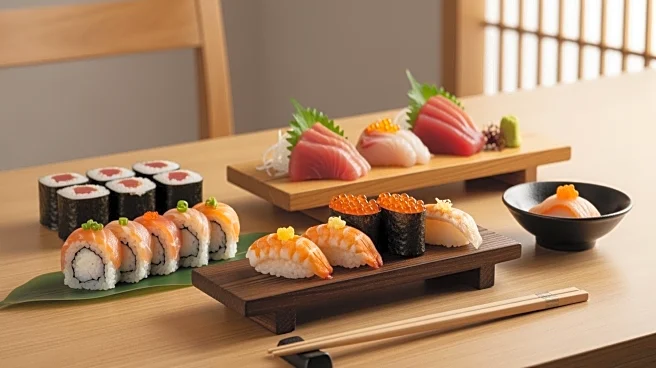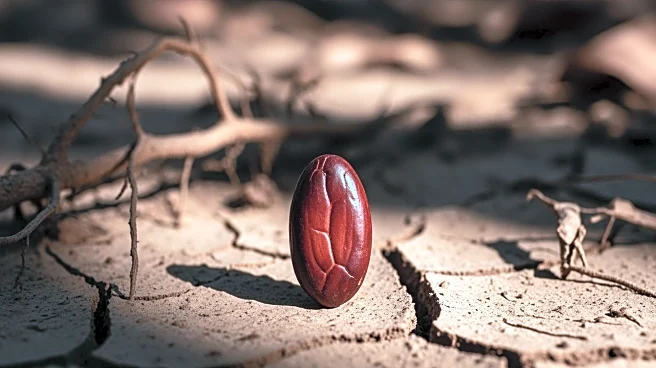What's Happening?
Jiro Ono, the renowned sushi chef and founder of Sukiyabashi Jiro, has turned 100 years old and remains active in his culinary pursuits. Despite his age, Ono plans to continue working for another five
years, emphasizing that work is the best medicine for maintaining health. Ono's restaurant, located in Tokyo's Ginza district, has been a symbol of sushi perfection, earning three Michelin stars for over a decade. His dedication to sushi was highlighted in the documentary 'Jiro Dreams of Sushi,' where he expressed his ongoing quest for perfection. Ono's commitment to his craft is evident as he continues to serve sushi to special guests, despite physical limitations.
Why It's Important?
Jiro Ono's milestone birthday and continued involvement in sushi making underscore the cultural significance of dedication and craftsmanship in Japan. As one of the world's oldest head chefs, Ono's story inspires both culinary professionals and the general public, highlighting the value of perseverance and passion in one's work. His influence extends beyond the culinary world, serving as a testament to the importance of tradition and excellence. Ono's legacy impacts the global perception of Japanese cuisine, reinforcing its status as an art form and cultural heritage.
What's Next?
Ono plans to continue working, aiming to reach the age of 114, inspired by the recent passing of Japan's oldest male at 113. His son, Yoshikazu, who now serves as head chef, will likely continue to uphold the restaurant's standards and traditions. As Sukiyabashi Jiro remains exclusive, accepting reservations only from regulars or through top hotels, the restaurant's reputation for excellence is expected to persist. The culinary world will watch as Ono continues to influence sushi making and inspire future generations.
Beyond the Headlines
Ono's story raises questions about the sustainability of traditional culinary practices in a rapidly modernizing world. His dedication to perfection and refusal to compromise quality for convenience challenges the fast-paced nature of contemporary dining. The ethical implications of exclusivity in high-end dining establishments also come into play, as Sukiyabashi Jiro's reservation policy limits access to its celebrated sushi. Ono's journey prompts reflection on the balance between tradition and innovation in the culinary arts.










